Direct RT-qPCR ProbesKit
Description
For in vitro use only!
Shipping: shipped on blue ice
Storage Conditions: store at -20 °C
avoid freeze/thaw cycles
stable at 4 °C for up to 4 weeks
Shelf Life: 12 months
Form: liquid
Description:
Direct RT-qPCR ProbesKit is designed for quantitative real-time analysis of target RNA directly from whole blood, swabs and animal- or plant tissue without the requirement of any prior RNA purification steps. The kit is recommended for use with Dual Labeled Fluorescent Probes,
e.g. TaqMan®, Molecular Beacons or FRET probes but can also be used without fluorescent probes in standard PCR assays. The kit contains an enzyme mixture including a genetically engineered reverse transcriptase and an antibody-inhibited Taq polymerase. The 2x conc. reaction mix contains ultrapure dNTPs and an unique buffer system optimized to resist various PCR inhibitors in unpurified sample material.
The kit ensures fast and easy preparation with a minimum of pipetting steps and is highly recommended for:
- direct detection of RNA viral patogens in various tissues
- direct amplification of target RNA from sample materials
- point-of-care diagnosis
Content:
Direct Enzyme Mix (red cap)
Mix of engeneered reverse transcriptase, antibody-inhibited hot start polymerase and RNase inhibitor in storage buffer with 50 % glycerol (v/v)
Direct Reaction Mix (green cap)
2x conc. buffer system containing dNTPs
Extraction Buffer (yellow cap)
10x conc.
PBS (phosphate buffered saline) (blue cap)
10x conc.
PCR-grade Water (white cap)
Sample preparation
1. Swab Samples
- Place the swab brush into a 1.5 ml microcentrifuge tube containing 270 μl PCR-grade Water and 30 μl PBS, 10x conc. (phosphate buffered saline).
- Rotate the brush 5-10 times.
- Squeeze the brush and remove it from the tube.
- Centrifuge at 12,000 g for 3 min at room temperature.
- Discard the supernatant.
- Add 90 μl PCR-grade Water and 10 μl Extraction Buffer to the harvested sample.
- Briefly mix the sample by vortexing and make sure that the sample is soaked with Extraction Buffer.
- Incubate for 3 min at room temperature for tissue lysis and RNA releasing.
- Centrifuge briefly and transfer 1-5 μl of the supernatant to the RT-PCR assay.
2. Animal or Plant Tissue
- Prepare a small piece from animal or plant tissue not exceeding 6 mm in diameter.
- Crack plant seeds to less than 1 mm in diameter using a BeadBeater, TissueLyser or small hammer.
- Add Extraction Buffer to the tissue sample as following:
| Sample size (diameter) | 1-2 mm | 3-4 mm | 5-6 mm |
| PCR-grade Water | 45 μl | 90 μl | 135 μl |
| Extraction Buffer | 5 μl | 10 μl | 15 μl |
- Mix briefly by tapping or vortexing and make sure that the sample is soaked with Extraction Buffer.
- Incubate for 3 min at room temperature for tissue lysis and RNA releasing.
- Centrifuge briefly and transfer 1-5 μl of the supernatant to the RT-PCR assay.
Preparation of the RT-PCR Assay
Add the following components to a nuclease-free microtube. Pipett on ice and mix the components by pipetting gently up and down.
| component | stock conc. | final conc. | 20 μl assay | 50 μl assay |
| Direct Reaction Mix | 2x | 1x | 10 μl | 25 μl |
| Sample | – | – | 1-2 μl | 1-5 μl |
| Forward Primer | 10 μM | 400 nM | 0.8 μl | 2 μl |
| Reverse Primer | 10 μM | 400 nM | 0.8 μl | 2 μl |
| Dual Labeled Probe | 10 μM | 200 nM | 0.4 μl | 1 μl |
| Direct Enzyme Mix1) | 25x | 1x | 0.8 μl | 2 μl |
| PCR-grade water | – | – | fill up to 20 μl |
fill up to 50 μl |
1) Direct Enzyme Mix already contains RNase inhibitor that is recommended and may be essential when working with low amounts of starting RNA.
Reverse transcription and thermal cycling:
Place the vials into a real-time PCR cycler and start the following program.
| Reverse transcription |
50 °C | 30 min | 1x |
| Initial denaturation |
95 °C | 5 min | 1x |
| Denaturation | 95 °C | 15 sec | 35-45x |
| Annealing and elongation | 60-65 °C 2) | 1 min 3) | 35-45x |
If using a standard PCR cycler combined with gel – based DNA analysis the following cycling protocol is recommended:
| Reverse transcription |
50 °C | 30 min | 1x |
| Initial denaturation |
95 °C | 5 min | 1x |
| Denaturation | 95 °C | 15 sec | 35-45x |
| Annealing2) | 55-65 °C | 30 sec | 35-45x |
| Elongation3) | 72 °C | 1 min/kb | 35-45x |
| Final elongation |
72 °C | 5 min | 1x |
2) The annealing temperature depends on the melting temperature of the primers.
3) The elongation time depends on the length of the amplicon. A time of 1 min for a fragment of 1,000 bp is recommended.
For optimal specificity and amplification an individual optimization of the recommended parameters may be necessary.
There are no question found.

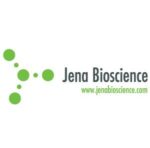

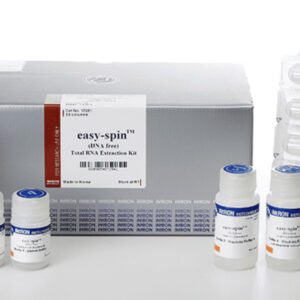
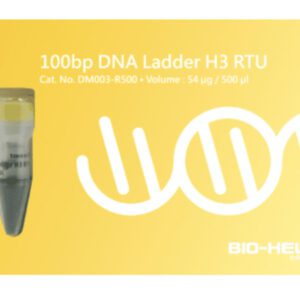
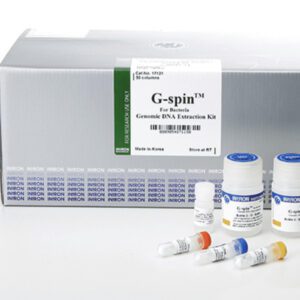



Rating & Review
There are no reviews yet.